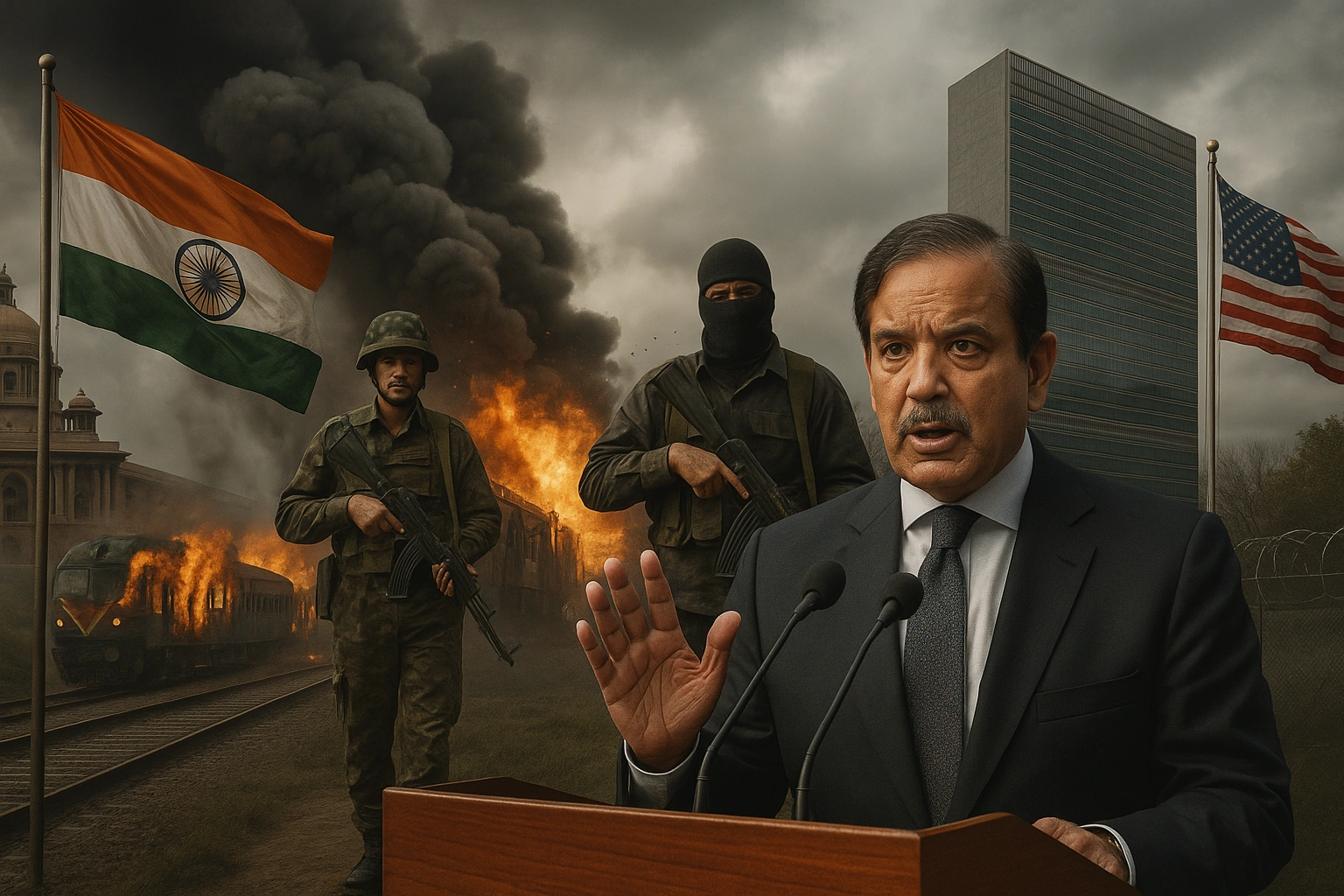The recent exoneration by the Indian judiciary of 12 persons (of whom one had already died) in the 2006 bombings on trains in Mumbai has again highlighted a shocking trend in Indian state policy: false flag operation as a tool of political and strategic advantage. Most of these operations are usually intended to demonize Pakistan and the Indian Muslims and thus constitute a potent combination of state propaganda, judicial complicity and aggressive military posturing. The July 20, 2025 decision is a harsh reminder of how lives were ruined due to planted evidence and how such tragedies keep being employed to shift a narrative of victimisation and violence with a communal tone.
The Case of Afzal Guru
The case of Afzal Guru’s capital punishment in the Indian Parliament attack probably presents the starkest instance of compromised judicial decision-making. The Indian Supreme Court acknowledged that there was no first‑hand evidence linking him to planning or execution, nor any formal affiliation with a terrorist group, yet he was condemned to death not on the basis of definite evidence but to appease the social conscience. This phrase alone says much about the politicization of the judiciary, now influenced by the mood of the population and official narratives instead of facts and justice. This case opened the door to justify other false flag incidences under the guise of national security and citizen reassurance.
Massacre of Pahalgam and Political Silence
Another suspicious episode is the Pahalgam massacre of April 22, 2025: the attackers were neither neutralized nor captured. The opacity of the government reaction fueled suspicions of an inside job. Mallikarjun Kharge, the opposition leader, demanded accountability from people such as Ajit Doval, alleging the attack might have been hijacked or doctored as diplomatic progress was underway, and even tied to Operation Sindoor. His critique came as U.S. President Donald Trump offered to broker a ceasefire, which the Modi regime reportedly opposed.
Responsible diplomacy in Pakistan
In contrast, Pakistan responded to the Pahalgam incident with measured responsibility. Prime Minister Shahbaz Sharif strongly condemned the attack, dismissed Indian claims as unfounded, and demanded an independent international inquiry. He urged the United Nations to mediate the Kashmir conflict, signaling Pakistan’s preference for international law over confrontational rhetoric a stance sharply different from India’s reflexive accusations.
Pulwama And Beyond
The Pulwama attack of February 14, 2019, is among the most significant alleged false flag events in India. Within hours, Indian officials blamed Pakistan, launched a diplomatic offensive, and rejected Pakistan’s offer for a joint investigation. This rash approach suggests Pulwama may have been used to justify military action such as the Balakot air strikes, serving domestic political aims and distracting from internal issues.
Escalation and Isolation
Since 2016, India, under Prime Minister Narendra Modi, has pursued an aggressive policy to isolate Pakistan diplomatically. This approach, combined with false flag operations, reveals a deeply militaristic foreign policy prioritizing control of the narrative and geopolitical advantage over peace and regional cooperation. India has frequently portrayed Pakistan as the epicentre of global terror to bolster its strategic standing and divert attention from its human rights violations in Indian‑administered Kashmir.
A Case of International Responsibility
Given the severity of these alleged false flag attacks and their implications, the international community including the UN Secretary‑General, G20 leaders, and human rights organisations must insist on transparency and accountability. Reports like those from Genocide Watch (Gregory Stanton) warn of rising dangers for India’s 220 million Muslims, calling for investigations into potential war crimes and crimes against humanity, especially in Kashmir and other regions.
Prevention of a Nuclear Disaster
These threats go beyond rhetoric they are existential. In both February 2019 and May 2025, South Asia nearly slid into nuclear conflict due to unsubstantiated Indian claims. In both instances, Donald Trump, as U.S. President, reportedly helped de-escalate tensions. Without such interventions, a nuclear exchange could have occurred. International powers, particularly the P‑5 of the UN Security Council, must establish systems to monitor clandestine Indian military and intelligence activities and prevent regional provocations.
The increasing reliance of India on false flag operations is not a local issue it threatens global stability. Whether through wrongful imprisonment or manipulation of events for political gain, the Modi government appears willing to jeopardize lives, foster communal tensions, and even risk war. The world must recognize this trend, hold India accountable, and ensure that justice, peace, and human rights are not sacrificed at the altar of political expediency. The price of inaction could be catastrophic.







